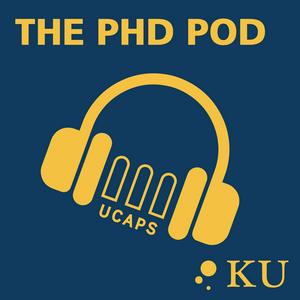What are microplastics and nanoplastics and what are their effects on our bodies? In this episode, Ida tells us about her research on these plastics, the ways they can be degraded and how to evaluate the risk they cause for our environment and our health. We also talk about Ida’s reflections on the gender gap in academic research and her involvement with WiES at DTU. Finally, we discuss Ida’s experience with parenthood during her PhD, the challenges she had to overcome and how being a parent helps her keep a work-life balance. This episode has been hosted by Jacopo Munaretto and Miriam Beyers. The PhDPod production is by Louise Morlot, Jacopo Munaretto and Miriam Beyers, and editing is by Davide Visintainer. More about UCAPS:UCAPS websiteUCAPS on Linkedin UCAPS on InstagramUCAPS on FacebookDo you want to be our next guest? You have feedback on the episode, or you want to get involved in UCAPS? Reach out to us at
[email protected].


